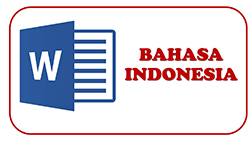Manajemen Sumber Daya Manusia dalam Pendidikan Islam
Abstract
Human resource management is one of the fields of general management which includes aspects of planning, organizing, implementing, and controlling. Human resources are considered to have an increasingly important role in achieving goals. The purpose of this study is to provide an understanding of human resource management. The method used by the researcher is descriptive qualitative research, and the type of research used is library research, namely collecting data or scientific papers related to the object of research or collecting data that is library or research carried out to solve a problem basically focused on critical and in-depth study of relevant library materials. The results of this study found that utilizing human resources is a process of leadership activity that intends to employ employees who provide sufficient performance and do not employ employees who are not useful. Thus, it is very important to manage human resources. From the results of the study, researchers can conclude that the reality of Islamic education in general is less attractive and receives less attention. This is due to inadequate curriculum materials and Islamic education management, less relevant to the needs of society and the world of work. The graduates also lack the skills to compete in the world of work. Seeing this reality, the management reform of Islamic education is a must. Because with efforts to improve and improve the professionalism of the management of education, it will be able to answer various challenges and can empower Islamic education in the future.
Downloads
References
Almasri, M. N. (2013). Impressum. European Journal of Immunology, 43(10), 2783–2783. https://doi.org/10.1002/eji.201370106
Basir Barthos. (2019). Manajemen Sumber Daya Manusia Suatu Pendekatan Makro. Jakarta: PT Bumi Aksara.
Bangun, Wilson. (2012). Manajemen Sumber Daya Manusia. Bandung: Penerbit Erlangga,
Barthos, Basir. (2012). Manajemen Sumber Daya Manusia (Suatu Pendekatan Makro). Jakarta: Bumi Aksara,
Hasibuan, Malayu S. P. (2015). Manajemen Sumber Daya Manusia (Edisi Revisi). Jakarta: PT Bumi Aksara,
Hermansyah, A. (2020). Upaya Peningkatan Kualitas Sumber Daya Manusia Dalam Pendidikan Islam. Journal of Hupo_Linea, April. https://ejournal.anotero.org/index.php/hupo/article/view/22
Jimmly Ash-Shidiqie (eds.). (2016). Sumber Daya Manusia Untuk Indonesia Masa Depan. Bandung: Mizan
Kadarisman, (2013). Manajemen Pengembangan Sumber Daya Manusia. Jakarta: Rajawali Pers,
Eri Susan. (2019). Manajemen Sumber Daya Manusia 2, 952–962.
Margono. (2016). Metodologi Penelitian Pendidikan. PT Rineka Cipta. Jakarta.
Moleong, Lexy J. (2019). Metodologi Penelitian Kualitatif. PT Remaja Rosda Karya. Bandung.
Nana Syaodih Sukmadinata. (2015). Metodologi Penelitian Pendidikan. Bandung: Remaja Rosdakarya.
Rahman, Y. A. (2020). Manajemen Sumber Daya Manusia. Tsaqofah; Jurnal Pendidikan Islam, 4(2), 1–23.
Sugiyono. (2016). Metode Penelitian Kuantitatif, Kualitatif, dan R&D. Alfabeta. Bandung.
Sulistyorini. (2019). Manajemen Pendidikan Islam.Yogyakarta: Penerbit Teras.
Samsuni : 113. (2017). Penulis adalah Kasubbag Keuangan pada Fakultas Syariah dan Ekonomi Islam UIN Antasari Banjarmasin. 113. Manajemen Sumber Daya Manusia, 17 no 31(31), 113–124. http://ejurnal.staialfalahbjb.ac.id/index.php/alfalahjikk/article/view/19





.png)










